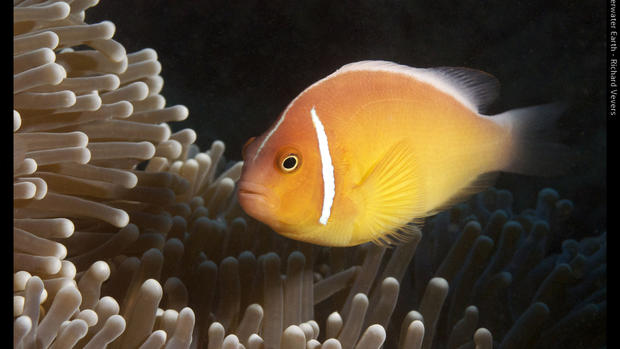Study: Climate change will significantly impact ocean health by 2100
New research shows that human impact on the climate will heavily influence marine habitats by 2100, supporting a study earlier this month that showed coral reefs could be extinct by 2050.
Climate change triggered by greenhouse gas emissions will influence every corner of the world ocean by that time, the researchers say. They predict that the changes will impact the 470-870 million people who depend on the oceans for their livelihoods.
"When you look at the world ocean, there are few places that will be free of changes; most will suffer the simultaneous effects of warming, acidification, and reductions in oxygen and productivity," lead author Camilo Mora said in a press release. Mora is an assistant professor in the Department of Geography in the College of Social Sciences at the University of Hawaii at Manoa.
Published Oct. 15 in the open-source journal PLOS Biology, Mora's latest research looked at co-occurrence of changes in temperature, pH, oxygen and primary productivity in the 32 marine environments. They also measured local populations' dependency on the ocean for food, commerce and social adaptability in order to estimate how vulnerable these populations are to change.
"Other studies have looked at small-scale impacts, but this is the first time that we've been able to look the entire world ocean and how co-occurring stressors will differentially impact the earth's diverse habitats and people," said co-author Andrew Thurber, a postdoctoral fellow at Oregon State University. "The real power is in the quantitative, predictive approach using IPCC climate models that allow us to see how much it will all change, and also how confident we can be in our estimates."
The results show that global averages for the upper layer of the ocean will change the most: the temperature will increase between 1.2 and 2.6 degrees Celsius, dissolved oxygen will decrease by 2 to 4 percent of the current measurements, and pH will decline by .15 to .31.
"The consequences of these co-occurring changes are massive--everything from species survival, to abundance, to range size, to body size, to species richness, to ecosystem functioning are affected by changes in ocean biogeochemistry," said Mora.
These changes will affect coral reefs, seagrass beds and other shallow habitats. The seafloor will see similar changes in dissolved oxygen but less severe temperature and pH changes.
While less severe than the impacts on shallower areas, these changes will have long-term affects on overall ocean health.
"The deep-sea floor covers most of the Earth's surface and provides a whole host of important ecosystem services including carbon sequestration in seafloor sediments, buffering of ocean acidity, and providing an enormous reservoir of biodiversity," said co-author Craig Smith.
"Nonetheless, very little attention has been paid to modeling the effects of climate change on these truly vast ecosystems. Perhaps not surprisingly, many deep seafloor ecosystems appear susceptible to the effects of climate warming over the next century."
"The impacts of climate change will be felt from the ocean surface to the seafloor. It is truly scary to consider how vast these impacts will be," added co-author Andrew K. Sweetman. "This is one legacy that we as humans should not be allowed to ignore."
